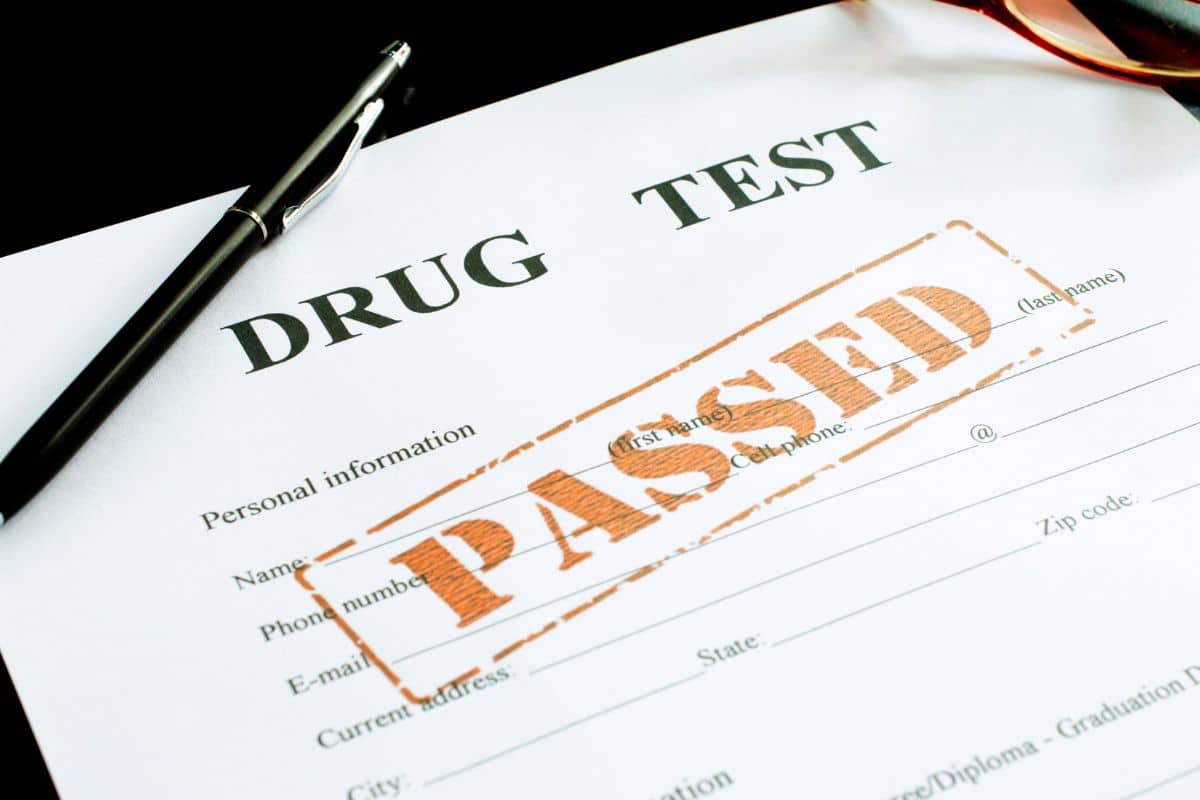How Long Does Delta 9 Stay in Your System: Understanding Duration and Detection
Curious about the stay time of Delta 9-tetrahydrocannabinol (Delta 9-THC) in your body? It matters a bunch if there’s a drug test coming up or you’re keen on understanding its effects on your mind and body vibes. Delta 9, the key ingredient in cannabis that takes you on a trip, doesn’t hurry to exit your system. Its duration varies based on factors like your toking frequency, your body’s blueprint, and your metabolic rate.
When you consume cannabis, Delta 9-THC is absorbed and can be detected in various bodily tissues and fluids. The substance is lipophilic, meaning it tends to be stored in fatty tissues and released slowly over time. As a result, it can be present in the body for days or even weeks after use. For infrequent users, Delta 9-THC is generally detectable in urine for up to three days, while chronic, heavy use can result in positive tests for up to 30 days or more.
Table of contents
It’s important to note that testing methods also play a role in detectability. Saliva tests may reveal cannabis use within a few hours to a day, blood tests can detect THC for up to 2 days, and hair follicle tests can identify THC presence for up to 90 days. As research continues, studies on Delta 9 have aimed to understand its long-term impact on behavior and how it interacts with the body, which may influence detection times and the overall understanding of Delta 9’s persistence in your system.
Understanding Delta 9 and Its Effects
Delta 9 THC, the primary psychoactive cannabinoid found in cannabis, has a distinct chemical structure that influences how it affects your body and brain. Familiarizing yourself with its composition and the physical and psychoactive impacts it produces is key to understanding how long it may stay in your system.
Chemical Structure of Delta 9 THC
Delta 9-tetrahydrocannabinol, or THC, is one of over a hundred cannabinoids present in cannabis plants. Its molecular configuration is notable for the presence of a cyclic ring that allows it to easily bind with receptors in the body’s endocannabinoid system. This binding is critical for THC’s psychoactive efficacy. The structure of THC includes:
- Aromatic Ring: Contributes to its ability to interact with brain receptors
- Cyclic Tail: Influences the strength and duration of its effects
- Hydroxyl Group (OH): Integral for the compound’s psychoactive properties
Physical and Psychoactive Effects
The physical effects of Delta 9 THC may include:
- Altered blood pressure and heart rate
- Reddening of the eyes due to vasodilation
- Motor impairment
- Dry mouth and increased appetite
Psychoactive effects, on the other hand, can be more varied and are typically the result of THC activating cannabinoid receptors, particularly in the brain. These effects often include:
- A sense of euphoria or feeling “high”
- Altered perceptual awareness
- Mood changes
- Short-term memory impairment
THC is metabolized into various metabolites that can linger in your system. These byproducts interact with your body’s endocannabinoid system, which plays a role in regulating numerous physiological processes, and contribute to both the immediate and prolonged effects of Delta 9 consumption.
Factors Influencing Detection Time

When discussing how long Delta 9 stays in your system, it’s crucial to consider various factors that can significantly alter detection times. These include your usage habits, physiological characteristics, and the method by which Delta 9 was consumed.
Frequency of Use and Dosage
- Heavy Use: If you use cannabis frequently, such as daily or multiple times a day, Delta 9 can be detected for a longer period due to the accumulation in your system.
- Occasional or Infrequent Use: Those who use cannabis less frequently may find that Delta 9 is detectable for a shorter duration.
- Dosage plays into this as well, with higher doses potentially lingering longer in your system.
Body Composition and Metabolism
- Weight and Body Fat: Since Delta 9 is lipid-soluble, individuals with higher body fat may store cannabinoids for longer periods, which can affect how soon they are cleared from the body.
- Metabolism: Your metabolic rate influences how quickly Delta 9 and its metabolites are broken down. A faster metabolism could lead to a shorter detection window.
Age and Gender
- Age: Metabolic processes tend to slow with age, which might prolong the presence of Delta 9 in your system.
- Gender: Hormonal differences between genders can influence the metabolism of cannabis, which may affect detection time.
Method of Consumption
- Smoking/Vaping: Inhaled cannabis typically has a shorter detection window compared to other methods because it enters and exits the bloodstream rapidly.
- Edibles: Since edible cannabis must pass through your digestive system, the Delta 9 metabolites may be detectable for a more extended period due to the slower processing time.
Types of Drug Tests for Delta 9 THC

When investigating how long Delta 9 THC remains in your system, different types of drug tests are utilized, each with its own mechanisms and detection windows for THC metabolites.
Urine Tests: Detection Windows and Popularity
Urine tests are the most common form of drug testing for THC metabolites. These tests can detect cannabinoid presence for 3 days to a month after usage, depending on the frequency of use. Urine tests are favored for their cost-effectiveness and longer detection window.
Blood Tests: Accuracy and Timing
Blood tests are highly accurate but have a shorter detection window for THC; from several hours up to a week post-consumption. THC is rapidly metabolized, and thus blood tests are used to infer recent usage rather than long-term consumption.
Saliva Tests: Non-Invasiveness and On-Site Screening
Saliva tests offer non-invasive, immediate on-site drug screening, with a detection window of a few hours to 3 days. These are practical for roadside testing or employment screening, particularly if recent use is to be determined.
Hair Tests: Long Detection Periods
Hair tests can trace drug use over months because drug metabolites enter the hair follicles from your bloodstream and remain as hair grows out. A hair test can show the presence of THC metabolites for up to 90 days or more since use.
Influence of Cannabis Product Types and Usage
The type of cannabis product you use and how often you use it can significantly impact how long Delta 9 THC stays in your system. Each product has a different THC potency level and metabolism rate, which can affect the duration of THC detectability.
Hemp vs. Marijuana: Legal and Potency Differences
Hemp-derived products and marijuana come from different strains of the cannabis plants. By federal government standards, hemp must contain less than 0.3% Delta 9 THC, which makes it legal on a federal level. Marijuana, on the other hand, typically has higher levels of THC and is subject to different state laws regarding its legality. The higher the THC potency in marijuana, the longer it is likely to stay in your system.
Full-Spectrum CBD Products and Trace THC
Full-spectrum CBD products include all the cannabinoids found in the cannabis plant, including trace amounts of THC. While usually not enough to elicit a psychoactive effect, the trace THC in full-spectrum products could potentially accumulate over time, especially with frequent use, leading to a positive drug test.
- CBD Products: May contain varying levels of THC
- Full-Spectrum: Includes all cannabinoids, may have trace THC
Edibles, Oils, and Smoking: Various Metabolism Rates
Edibles, such as gummies and capsules, often take longer to metabolize as they are processed through your digestive system. This could result in THC being detectable in your system for a longer period when compared to other consumption methods.
- Oils: Absorbed sublingually, quicker onset than edibles
- Smoking or Inhalation: Fastest absorption and onset; metabolites may stay in the system for days to weeks depending on usage patterns
Heavy or frequent use of high potency THC products, whether smoked, vaporized, or ingested, can prolong the time THC remains detectable in your body. Always consider the THC content and the form of cannabis consumption to estimate the duration of its presence in your system.
Strategies for Eliminating THC from the Body

When delta-9-tetrahydrocannabinol (THC) is consumed, it is metabolized into various compounds known as metabolites, which can linger in the body’s organs, particularly the liver. Understanding how to facilitate the detoxification process can help in eliminating these metabolites more efficiently.
Detoxification and Flushing Methods
To accelerate the detox process and flush THC out of your system, engaging in regular exercise can be beneficial. Fat cells store THC metabolites, and through exercise, you can break down these fat cells, releasing the metabolites into the bloodstream, from where they can be processed and eliminated. However, it’s crucial to stop exercising 48 hours before any testing, as metabolite levels can spike in the blood and urine immediately after exercise.
The Role of Water and Fiber Intake
Hydration and dietary fiber intake are key to eliminating THC. Drinking ample water helps maintain kidney function and allows for efficient filtration and excretion of substances, including THC metabolites. Similarly, fiber aids the digestive system and can help move metabolites out through your stool. Including high-fiber foods in your diet, such as fruits, vegetables, and whole grains, can facilitate this process.
Detox Kits and Their Effectiveness
Detox kits, often comprising a combination of herbal supplements, claim to cleanse your body of THC quickly. While their effectiveness varies, and some might not be reliable, others have components that can potentially support the liver and aid in the metabolism and excretion of THC. Before using any detox kits, it’s important to research their safety and efficacy as they are not all created equal.
Legal Implications and Workplace Drug Testing
Delta 9 THC, the primary psychoactive compound in cannabis, has complex legal ramifications, particularly in the workplace. Understanding these will help you navigate the risks of drug testing and employment decisions related to cannabis use.
Understanding the 0.3% THC Regulation
The 0.3% threshold is a key legal demarcation line; it defines the maximum amount of THC that a hemp product can contain to be considered legal under federal law. Products with Delta 9 THC levels over this percentage are classified as marijuana and thus subject to stricter regulations. It’s critical for you to be aware that any consumption of products exceeding this limit can lead to a positive drug test result, potentially affecting your employment status.
Federal and State Laws on Drug Testing
In the workplace, drug testing policies vary widely depending on federal and state laws. Federal employees are typically subject to stringent drug testing regulations. In states where cannabis is legal, laws can differ; some may provide protections for medical marijuana users, while others do not. Before using any THC-containing products, check the specific laws in your state to ensure you understand the potential employment risks.
Avoiding False Positives and Ensuring Accurate Results
To avoid false positives on a drug test, consider informing the testing entity about any legal hemp or CBD products you’ve used. For accurate test results, testing facilities must follow certain procedures, as highlighted in an article discussing the scientific and legal validity of urine drug tests. Ensuring that the facility adheres to these can protect you from erroneous test outcomes that could have significant legal and employment consequences.
Frequently Asked Questions
Understanding how long Delta 9 remains in your system is crucial for various health and legal considerations. These FAQs address common concerns related to detection, accumulation, and metabolism of Delta 9.
What is the typical detection window for Delta 9 in a blood test?
Typically, Delta 9 can be detected in your blood for up to 36 hours after use. However, this window can vary based on several factors such as frequency of use and metabolism.
Can Delta 9 accumulate in the body over time with repeated use?
Yes, with repeated use, Delta 9 can accumulate in your body’s fat tissues, potentially extending the time it takes to completely clear from your system.
What factors influence the duration of Delta 9 in the bloodstream?
Several factors influence how long Delta 9 remains in your bloodstream, including body fat percentage, metabolic rate, and the frequency and amount of cannabis use.
How does the body metabolize and eliminate Delta 9?
Your body metabolizes Delta 9 primarily in the liver, converting it to various metabolites, which are then eliminated through urine and feces.
How does the duration of Delta 9 effects compare to the time it remains detectable in the body?
While the psychoactive effects of Delta 9 may last for several hours, the compound and its metabolites can remain detectable in your body for much longer, depending on the type of test used.
Does the potency of the Delta 9 dose affect how long it stays in your system?
Higher potency doses of Delta 9 can increase the length of time the compound stays detectable in your system, as the body requires more time to metabolize and excrete larger amounts of the substance.








